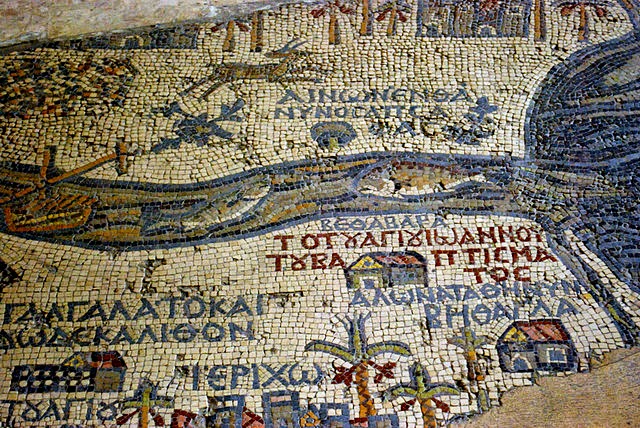Stars and Stripes’ article reporting on the border that Turkey shares with the Levant is described with the same characteristic fright as many outlets are reserving for the situation at the US border with Mexico. Western officials are very concerned about this NATO march’s ability to secure a border designated as porous, as it has been used as a point of entry (and egress) for militants to join in arms the insurrection against the governments of Syria and Iraq. The border itself is described as a thousand kilometer expanse of rugged wilderness—with a few population centres straddling the shallow basin of the River Euphrates that marks the boundary. This area at the crossroads of several trade routes has held a pivotal position and hosted a variety of people throughout history, and one of those population centres is the ancient city of Gaziantep, which has over a million residents from all sorts of backgrounds and confessions and also hosts an outpost of the US military and a missile battery.
skip to main |
skip to sidebar
pages
this week’s popular posts
-
spitzmaus mummy in a coffin and other treasures : Vienna’s Kunsthistorisches Museum’s guest curators, Wes Anderson and Juman Malouf siss-b...
-
Via Miss Cellania , we are directed to the rather compelling 1961 biblical epic (overshadowed by others in the genre) directed by Richard ...
-
Via Damn Interesting’s Curated Links , not only do we learn that our avian friends also dream , singing silently in their sleep, but res...
-
Via fellow internet peripatetic Messy Nessy Chic , we discover a 1983 self-defence manual authored by Australian Bob Jones—a martial art...
-
An 1959 early spring testimony before an American senate subcommittee on the effects of “Red China Communes on the United States” by an Asi...
-
dolia : new research reveals Roman wines to be of premium quality, contrary to conventional wisdom, and comparable to modern European standa...
-
the cloud under the seas : the fleet of secret submarine cable repair ships sarbox : US Supreme Court appears skeptical about charging...
-
Venerated on this day on the occasion her death in 1433, aged 52 after a life of suffering progressively worsening ailments due to an accide...
-
First performed on this day in 1951 in community hall of the Hirschbach (presently the Hotel Zum goldenen Hirsch) of Suhl by local musi...
-
Having a distinct and confused memory of the redacted Ewoks on the reverse of Kenner’s action figure packaging teased ahead of the relea...
📐
🇺🇸
🇩🇪
🎓
🎶
🇬🇧
networking and blogging
🧠
🎬
📚
lifestyle
🌍
📺
💬
⚕
💡
⚖️
environment
ⓦ
🔭
🌐
🇫🇷
🥸
💱
🎨
labour
foreign policy
📅
holidays and observances
🌱
🤖
🇮🇹
architecture
🇯🇵
antiques
📷
revolution
🇷🇺
✝️
myth and monsters
🌏
language
💭
🗺
🗞
🇪🇺
travel
food and drink
religion
🔣
Wikipedia
transportation
libraries and museums
⚛️
🧮
🇬🇷
Star Wars
economic policy
🇨🇦
🌎
🌪
🖖
🚘
🇨🇭
👾
🇳🇱
🌡
🏌️
Hessen
🏺
philosophy
🇨🇳
🏳️🌈
🎙
🚋
🧳
🇹🇷
📔
Bavaria
🇳🇴
🎭
🇸🇪
Middle East
🎄
😈
🇮🇸
✈️
technology and innovation
🧲
Middle Ages
Rhön
sport and games
🧬
🇦🇹
🏕
🇨🇿
🇺🇦
🥂
🇮🇪
🛡️
🇲🇽
🇪🇸
💾
🌙
💧
🕳️
🗽
🧶
🌳
graphic design
🚢
🍻
America
⚰️
Saxony
🧀
🇧🇪
🍔
The Simpsons
🎃
🛸
1971
Mars
😺
1972
☦️
🌉
1968
1969
1973
Thüringen
🪆
🏛
🐝
1970
💂♂️
🇩🇰
🇵🇱
🃏
🇭🇷
👨🎤
📯
🪶
🏰
🛋
Rheinland-Pfalz
🧿
1981
🇫🇮
📱
Kubrick
🧱
👻
Europe
🍄
🇵🇹
🎲
🚌
Dune
🍹
the Caribbean
🏴
🧜♂️
1980
🍕
🔎
1982
🍞
🧪
1983
✡️
🏢
🐣
1984
1985
1989
🐾
🔮
1999
💌
1990
♻️
🐴
Tolkien
🤸
🎛
🎢
🗳️
health and medicine
🇻🇦
🌋
🍂
🚲
1974
1991
♞
💂
1987
Baden-Württemberg
🇭🇺
🍽
🔥
🩰
1975
1978
1992
🦸
1976
♏
🍝
🍷
🏴☠️
1977
1979
⚒
🎺
🛒
2001
🏌️♂️
🖼
1993
🇪🇪
🇬🇱
🇰🇷
🦃
🧛♂️
🇭🇰
🇸🇰
🇻🇳
🐳
💄
🦈
1967
Blade Runner
🌤
🥃
🥣
🦢
1986
🇰🇵
🇳🇿
🇵🇸
🐑
🦕
🌵
🕺
🛂
🛍️
🦋
🇮🇲
🇹🇼
🍫
🏳️⚧️
1988
physics
☕
🥤
🦅
🪐
🇨🇾
🇲🇹
🇸🇮
🐌
🦆
🦒
🧟
2003
🇸🇬
🕸️
🛼
🦑
2000
⚽
🇮🇳
🕯
⚠️
🇦🇺
🇬🇪
💈
🦇
1994
1998
⚾️
🇦🇲
1995
1996
🇦🇱
🇱🇺
🇲🇩
🏖
1997
🇱🇻
🇲🇨
🇸🇾
🐬
⛸
🇧🇷
🇸🇲
🎳
🦚
🇦🇩
🇱🇮
2002
🇪🇬
💂♀️
🤸♂️
2012
🦸♂️
2005
🇨🇳.💬
🇷🇴
🌲
🤸♀️
🧛











